It’s 2:15 a.m. and Daisy Mae is pacing. She’s definitely in labor. “She’s so loving, sweet, and clingy when she’s in labor. She likes the company when I’m with her.” said Melanie Bell. It’s 2:45 a.m. and she’s sweaty and there’s more 'poop' on the fresh shavings, another sign of labor. It’s 3:06, she’s stopped pacing. Both Bell and Daisy Mae are yawning. It’s 4:45 a.m., it’s a girl!
Smack dab in the heart of Lone Oak, Kentucky is a full-service farm that’s been in the family since the 1940s. Melanie Bell, a Paducah Tilghman graduate, and her husband, Kevin moved to the second-generation family farm on Valentine’s Day 1992. Bell Meadows Farm, formerly Ham Farm, was previously owned by Kevin’s maternal grandparents, Earl and Edna Ham. After Edna passed away in 1991, the Bell’s became the proud, new owners of the family farm. The 65 acres of farmland located on Lovelaceville Road extends as far back as the Lone Oak Tennis Courts at 400 Lakeshore Drive. Currently, the Bells lease 33 acres for farming soybeans and corn and the rest of the acreage is farmed by the Bells. The land cultivates good, quality hay and is sold to local farmers to feed their livestock. Through the years, animals have always been a big part of the farm. In 1947, a large concrete barn was built and used to board horses. The farm raised cattle in the 40s and 50s and again in the 80s through 2010. Even their eldest son Cole knew how to turn a dollar by raising chickens. He started with a few hens as a preteen and launched a chicken egg business. At one point, there were 60 chickens on the farm. For 11 years, he operated Barnyards Best Fresh Country Eggs and sold to local restaurants and surrounding residents in the area. Melanie said, “We had a refrigerator on our back porch for many years and people would leave their money in a jar and get fresh eggs in cartons out of the refrigerator on the honor system.” The farm is home to many animals: wild turkey, deer, fox, coyotes, skunks, groundhogs, opossums, owls, hawks, all God’s woodland creatures. One of the most beloved animals living on the farm are Mel Bell’s donkeys. In 1996, an eight month gelding named Elvis arrived on the Bell farm. For a time, goats were raised on the farm and they were Elvis’ best buddies but Melanie’s heart was with the donkeys. Elvis is now 25 years old and is as much a part of the farm as any one person, animal, or fixture. In 2008, the Bells bought five six-month-old baby Jennets (female donkeys) and a five-month- old baby Jack (male donkey for mating). When the donkeys turned three years old, it was time to breed, raise and sell registered miniature donkeys. This was the beginning of Bell Meadows Farm Miniature Donkeys. Melanie is the caregiver of the 'much loved' donkeys. From birth, she takes care of the donkeys or babies as she calls them. “The babies on the farm generally see me before they see their real mom because I get in there and towel dry them and clean them up as soon as they are born and mom is resting a minute.” Bell said this is called imprinting and “they love me like another mom.” Bell said donkeys have similar personalities to dogs. “They love to be cuddled, brushed and are very affectionate.” They know their names and they think of her as one of them and trust she will be there when it’s time to give birth. Donkeys gestate for 365 days and are bred on Bell Meadows between April and October. Typically, the foals (babies) will nurse for six months and will be weaned by Bell if the mother hasn’t already done so. Bell said the donkeys are definitely pets and it’s hard to see them go, but they are stock for her business. There’s a waiting list for these docile creatures. After birth, Bell said she usually calls the first person on the list to see if they’re interested. She’ll share the sex of the foal and the color. If they prefer to wait till the next birth, Bell calls the next person on the list. She says she likes loving the donkeys and getting them ready for their new home. They’re usually sold 24 - 48 hours after birth. “I’ve only kept one baby so far and that’s Loretta.” Loretta was born in 2012 when temperatures remained over 100 degrees for 10 consecutive days. She said the baby had to have IVs in order to stay hydrated. Bell said, “I always get attached but with Loretta I was super attached because we worked so hard to save her.” She continued, “Loretta had a hard time nursing to hydrate and getting the proper nourishment needed after birth. The heat was horrible”. Bell is responsible for the day to day donkey care and maintenance. She said her husband and family help with hauling hay, worming, and taking the donkeys to the vet, if necessary. A Farrier comes four to five times a year to trim their hooves. Bell scoops the poop, feeds, maintains, loves, and spends time with her animals. “Regardless of the weather, the animals need to be taken care of. If it’s 104 degrees or 12, it’s a year-round job.” The Bell family have outside jobs and generally stay 'six to 12 months behind' on the farm. “On farm days, we’re busy checking on the donkeys, cleaning out the troughs, hauling food, cleaning manure out of the barn, checking and fixing fences, cutting trees, maintaining the farm equipment, disking, planting, cutting, raking, and hauling hay.” said Bell. The Bell’s two sons are grown and no longer live on the farm. When there’s a big job to do, such as new fencing or cutting down trees, the sons are there to help. In fact, Bell said much of her strength comes from God and her family. “My family is always a phone call away in an emergency or when I need to discuss a farm issue. I couldn’t do it without God taking care of me and blessing me through tough times including cancer.” After giving birth this morning, Daisy Mae is doing well and her foal is already nursing. Bell said, “She’s a beauty.” Facebook posts are pouring in congratulating Daisy Mae on a job well done. Neighbors in Lone Oak are excited for the opportunity to watch the foal in the field. Being right smack dab in the middle of the suburbs is a joy for the residents that walk or drive-by Bell Meadows. Seeing the donkeys play, run, and enjoy their day is special. Bell said, “my favorite time of the day is usually when the work for the day is done and I get to come into the house and get warm or in the air conditioning and relax after doing chores.” Her favorite part of farm living is ‘watching the animals give birth and watching the miracle of life.’
0 Comments
Leave a Reply. |
Written by
Liz Latta Archives
July 2021
Categories |
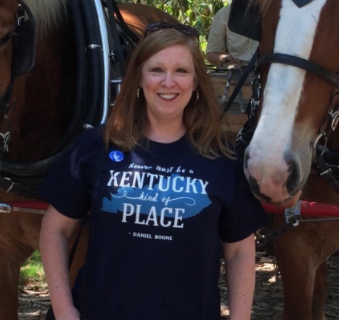
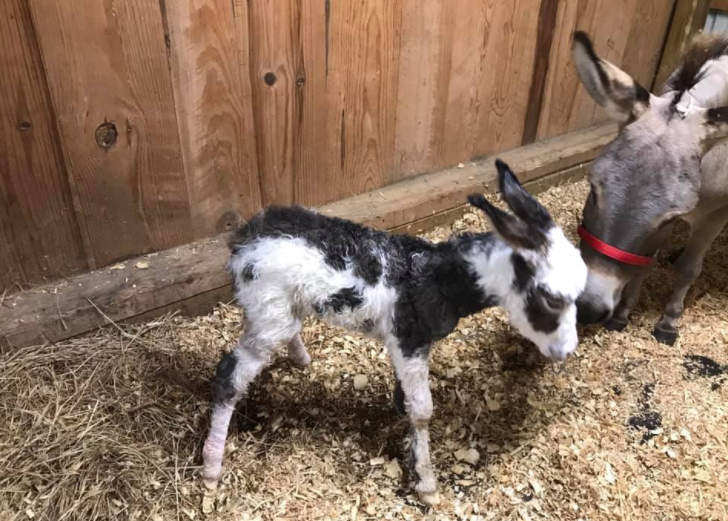
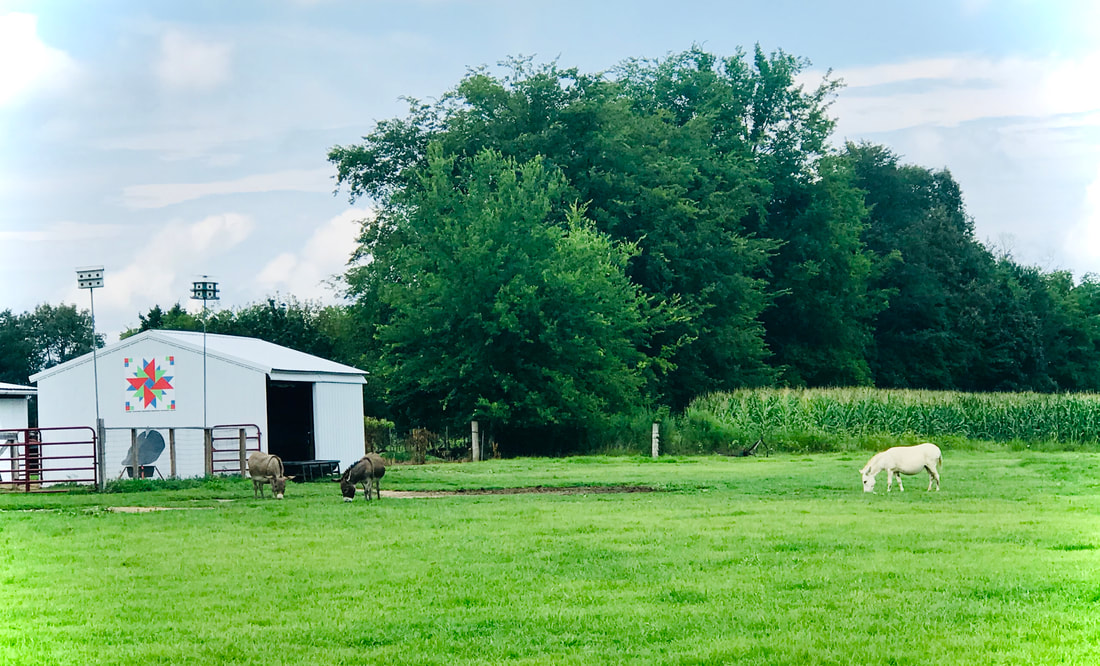
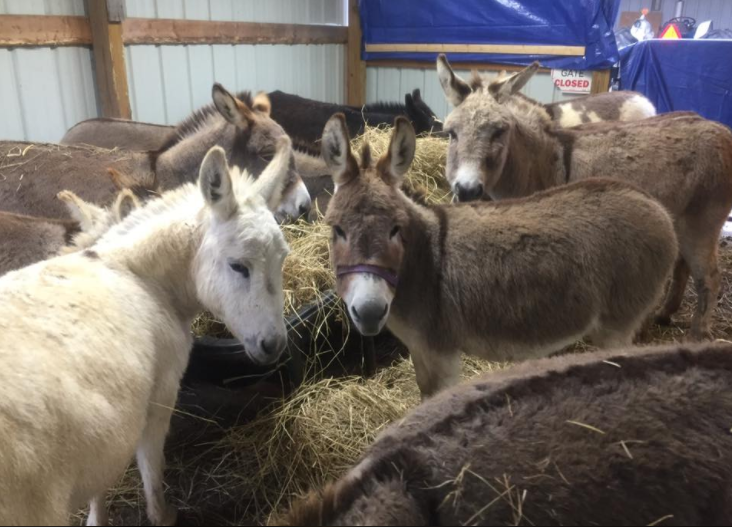
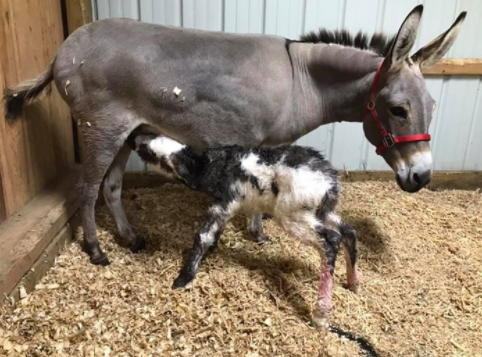
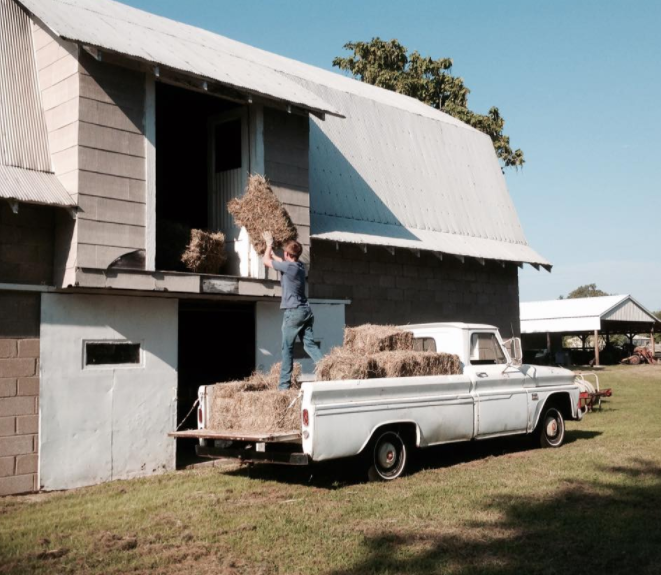

 RSS Feed
RSS Feed